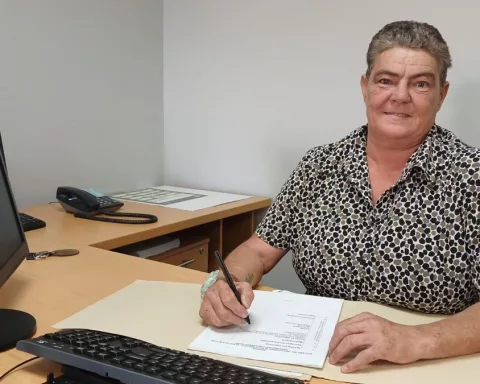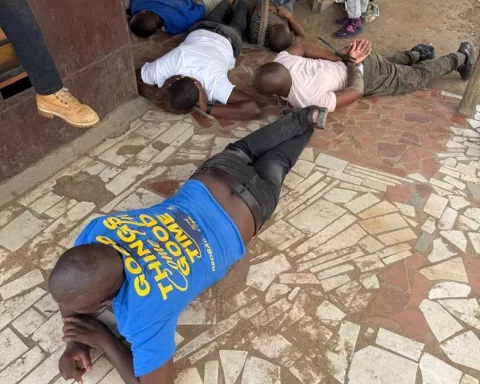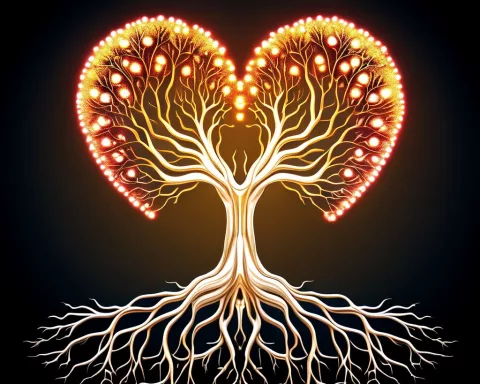Pope Francis, at 88 years old, faces serious health problems, including kidney failure and risks of infection. Yet, his spirit shines bright as he leads Mass from his hospital bed, showing the world his incredible strength and dedication. People everywhere are sending their love and support, uniting in prayer and hope for his recovery. As he navigates his health challenges, the pope continues to inspire many, proving that faith and resilience can light the way even in tough times. His journey reminds us all of the power of leadership and the importance of compassion.
What are the key challenges Pope Francis faces with his health?
Pope Francis, at 88, confronts significant health challenges including kidney failure and the risk of sepsis. Despite these issues, he remains dedicated to his spiritual duties, continuing to lead Mass even from his hospital bed. His resilience inspires global support and highlights his unwavering commitment to leadership.
The Complex Health of a Global Leader
Pope Francis, a spiritual leader cherished across continents, finds himself at a pivotal moment as he navigates the challenges of aging and illness. At 88, the pope’s health reflects the intricate dance between human resilience and physical limitations. His well-being is a matter of global concern, as both religious followers and secular audiences recognize his profound influence on the world stage.
Despite facing formidable health issues, Pope Francis remains committed to his spiritual duties. His condition, characterized by initial signs of kidney failure and the threat of sepsis, poses significant challenges. Yet, he continues to lead Mass from his hospital bed, showcasing a spirit that defies the constraints of his medical situation. This determination mirrors the tenacity celebrated during the Renaissance, a period that honored the strength of the human spirit against life’s adversities.
The Vatican’s cautious optimism about Pope Francis’s health underscores the delicate balance between hope and reality. His medical team navigates a landscape fraught with uncertainties, striving to maintain a sense of equilibrium. As the world watches, the pope’s unwavering commitment to his role serves as a beacon of hope and inspiration, reminding us of the indomitable nature of human will.
Global Support and Solidarity
Pope Francis’s health struggle has ignited a wave of support from people around the world, reflecting his universal appeal and the deep connections he has fostered across different cultures and faiths. Messages of solidarity pour in from diverse quarters, reminiscent of the global support shown to cultural icons and political leaders in times of crisis. In Buenos Aires, the city’s iconic obelisk shines with prayers, a powerful symbol of community and hope.
Religious leaders also offer their solidarity, with Sheikh Ahmed al-Tayeb, the grand imam of Al-Azhar, extending heartfelt prayers for the pope’s recovery. This gesture embodies the interfaith dialogue and unity that Pope Francis has diligently championed throughout his papacy. His efforts to bridge religious divides have left a lasting impact, fostering a sense of shared humanity among diverse communities.
In New York, Cardinal Timothy Dolan’s homily at St. Patrick’s Cathedral resonates with a blend of empathy and realism. His words reflect the sentiments of many Catholics who strive to balance hope with the possibility of change. Dolan’s acknowledgment of the pope’s fragile health underscores the Church’s human aspect, a reminder of its leaders’ vulnerabilities and the collective journey of faith shared by its followers.
Leadership in Transition
As Pope Francis contemplates the future, he remains a pivotal figure in the Vatican, continuing to guide the Church through potential transitions. Despite his unpredictable health, he demonstrates foresight akin to historical leaders who ensured continuity in times of uncertainty. His recent appointments, including 21 new cardinals, highlight his strategic vision for the Church’s future, preparing it for eventual leadership changes.
Pope Francis’s decision to appoint younger cardinals reflects his desire for a dynamic and forward-thinking Vatican. This move resonates with the Church’s enduring narrative of continuity and change, ensuring that the next generation of leaders is prepared to uphold its mission. His actions mirror the prudent strategies of past leaders, such as those during the Medici era, who safeguarded their institutions against the tides of time.
Though whispers of potential abdication echo through the Vatican’s corridors, Pope Francis remains resolute. His recent extension of Cardinal Giovanni Battista Re’s term as dean of the College of Cardinals demonstrates his commitment to stability in the face of transition. This decision underscores his dedication to maintaining a steady hand on the helm of the Church during a period of potential change.
The Legacy of a Transformative Leader
Pope Francis’s influence extends beyond the confines of the Church, impacting global conversations on compassion, environmental stewardship, and social justice. His leadership has inspired figures across various domains, encouraging a shared dialogue on humanity’s pressing challenges. Even as he delivers his reflections from a hospital bed, his words continue to resonate on a global scale, sparking meaningful change.
The pope’s temporary residence at the Gemelli Hospital in Rome serves as a poignant reminder of the fragility and resilience of human life. While medical professionals remain cautious, the hope for his recovery signifies the enduring impact of his leadership. His journey exemplifies the perseverance that countless artists and thinkers have explored throughout history, a testament to the power of faith and determination.
In this moment, Pope Francis stands as a living embodiment of perseverance, a figure whose journey intertwines with the hopes and prayers of millions. His story, marked by challenges and triumphs, continues to inspire—a powerful testament to the enduring spirit of leadership and the strength of faith in the face of adversity. As the world watches, his narrative unfolds, offering valuable lessons on resilience and the transformative power of belief.
FAQ about Pope Francis’s Health and Leadership
What health challenges is Pope Francis currently facing?
Pope Francis, at 88 years old, is dealing with significant health issues, including kidney failure and an increased risk of sepsis. Despite these serious conditions, he continues to lead Mass from his hospital bed, showcasing his strength and commitment to his spiritual duties.
How is the global community responding to Pope Francis’s health situation?
The health struggles of Pope Francis have sparked a wave of global support, with messages of solidarity flooding in from various cultures and faiths. Notable figures, including religious leaders like Sheikh Ahmed al-Tayeb, have offered prayers for his recovery, illustrating the interfaith dialogue and unity he has fostered throughout his papacy.
What measures is Pope Francis taking to ensure the future leadership of the Church?
Pope Francis is actively preparing for the future of the Vatican by appointing younger cardinals, which reflects his vision for a dynamic and forward-thinking Church. His recent appointments, including 21 new cardinals, demonstrate his commitment to ensuring continuity and stability amid potential transitions in leadership.
How does Pope Francis’s health impact his leadership role?
Despite his health challenges, Pope Francis remains a pivotal figure in the Vatican, guiding the Church through uncertain times. His determination to fulfill his responsibilities, even while facing health issues, serves as a beacon of hope and resilience, inspiring many around the world.
What legacy is Pope Francis building during his papacy?
Pope Francis is leaving a lasting legacy that transcends the Church, influencing global discussions on compassion, environmental stewardship, and social justice. His teachings and actions continue to resonate, encouraging meaningful dialogue on pressing global challenges, even as he advocates from his hospital bed.
How can people express their support for Pope Francis during this time?
Individuals can express their support for Pope Francis through prayer and sending messages of hope and solidarity. Many have taken to social media or participated in community gatherings to reflect on his impact and to wish for his recovery, demonstrating the collective spirit of compassion and unity he has inspired.












